Imagine a world where the Titanic never sank, arriving safely in New York Harbor in April 1912. This single event would have altered the course of history in countless ways.
From maritime safety regulations to the lives of the ship's passengers, the ripple effects of the Titanic's successful voyage would have reshaped the 20th century.
How might this alternate timeline have unfolded, and what would the world look like today if the 'unsinkable' ship had lived up to its name?
Survivors' Lives Transformed
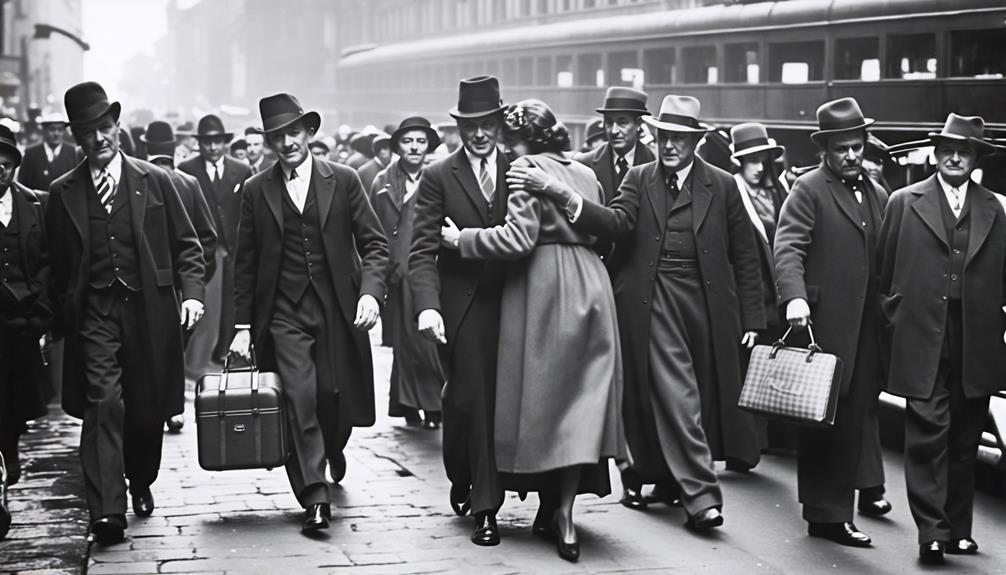
Had the Titanic reached New York safely, the lives of its passengers and crew would have been forever changed. Some historians theorize that this could have led to significant alterations in 20th-century society, as many influential individuals were aboard the ship.
For example, the survival of wealthy passengers like John Jacob Astor IV and Benjamin Guggenheim might've meant continued investments in their respective industries, potentially reshaping the economic landscape. Additionally, the survival of the ship itself could have delayed the implementation of stricter maritime safety regulations.
It's worth noting that a similar scenario did occur in 1956 when the Italian ocean liner Andrea Doria collided with another ship and sank, resulting in the loss of 46 lives. However, the vast majority of its passengers and crew survived, leading to a different outcome than that of the Titanic.
Titanic's Illustrious Career
Had the Titanic not sunk on that fateful night in 1912, one theory is that she'd have gone on to enjoy a long and illustrious career as one of the world's premier ocean liners. It could have meant setting new records for transatlantic crossings and hosting countless celebrities and dignitaries. Titanic's legacy might've been one of grandeur and success, becoming a symbol of luxury travel for generations.
However, it's worth noting that other ships, such as the Olympic-class ocean liners, did go on to have successful careers despite the Titanic's tragedy. The sinking of the Titanic led to significant changes in maritime safety regulations, which may not have occurred as quickly or extensively if the disaster hadn't taken place.
Advancements in Ship Design
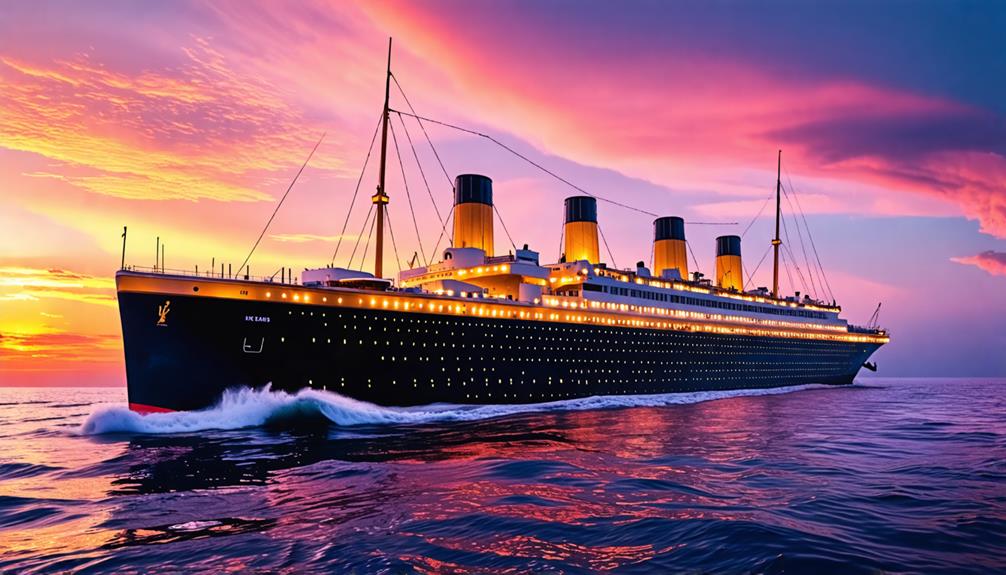
In an alternate history where the Titanic disaster didn't spur major safety advancements, ship design might've progressed more slowly. One theory is that lifeboat requirements, watertight compartments, and hull designs would have remained largely unchanged for years, potentially leading to more maritime tragedies.
It's possible that without the Titanic as a catalyst, wireless communication mightn't have become standard on ships as quickly, delaying the ability to call for help during emergencies.
If a similar disaster occurred later by another ship, it could have finally prompted the shipping industry to implement these critical safety measures.
Altered Cultural Landscape
While the Titanic's sinking is a defining moment in history, an alternative scenario where it completed its maiden voyage uneventfully would have altered our cultural landscape.
One theory suggests that without the 'unsinkable' myth, public fascination with the ship might've been short-lived, and it could have faded into obscurity among other early 20th-century ocean liners.
Maritime safety regulations may have evolved more gradually without the Titanic disaster to spur immediate changes. It's possible that subsequent maritime accidents, such as the sinking of the Lusitania in 1915 or the Empress of Ireland in 1914, would have eventually led to similar safety reforms.
Pop culture would also look different in a world where the Titanic safely reached New York. James Cameron's 1997 blockbuster movie and Celine Dion's hit song 'My Heart Will Go On' mightn't exist, or they could have taken a different form without the tragic real-life story to draw upon.
Impacts on Maritime Regulations
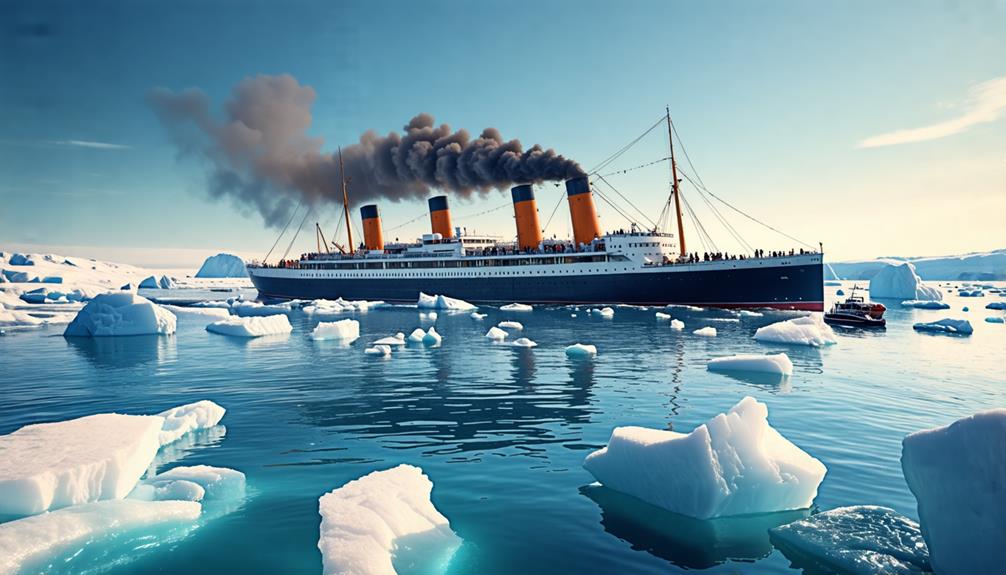
In an alternate timeline where Titanic's maiden voyage was successful, experts theorize maritime safety regulations may have progressed more slowly. One possibility is that complacency from the ship's triumph could have delayed updates to lifeboat requirements, distress signal procedures, and iceberg monitoring protocols by years or even decades.
It's conceivable that less stringent safety measures might've eventually led to a similar disaster occurring with another vessel at a later date. This could have finally spurred the maritime industry to enact the robust regulations and safety standards we know today, but potentially at the cost of even more lives lost.
Fate of Famous Passengers
Had the Titanic reached New York, the lives of its famous passengers may have taken different paths.
John Jacob Astor IV, the wealthiest man onboard, could have continued expanding his business empire, potentially influencing the economy for decades to come.
Molly Brown, known as the 'unsinkable' socialite, might've become a key figure in the women's suffrage movement, possibly accelerating the push for women's voting rights.
Benjamin Guggenheim, the wealthy industrialist, may have further developed his family's mining and smelting operations, which could have led to significant changes in the mining industry.
It's worth noting that a similar scenario did occur in 1956 when the Italian ocean liner Andrea Doria collided with another ship and sank, though with far fewer casualties than the Titanic.
The impact on history, had the Titanic completed its journey, remains a topic of speculation and alternative history discussions.
Ripple Effects on WWI
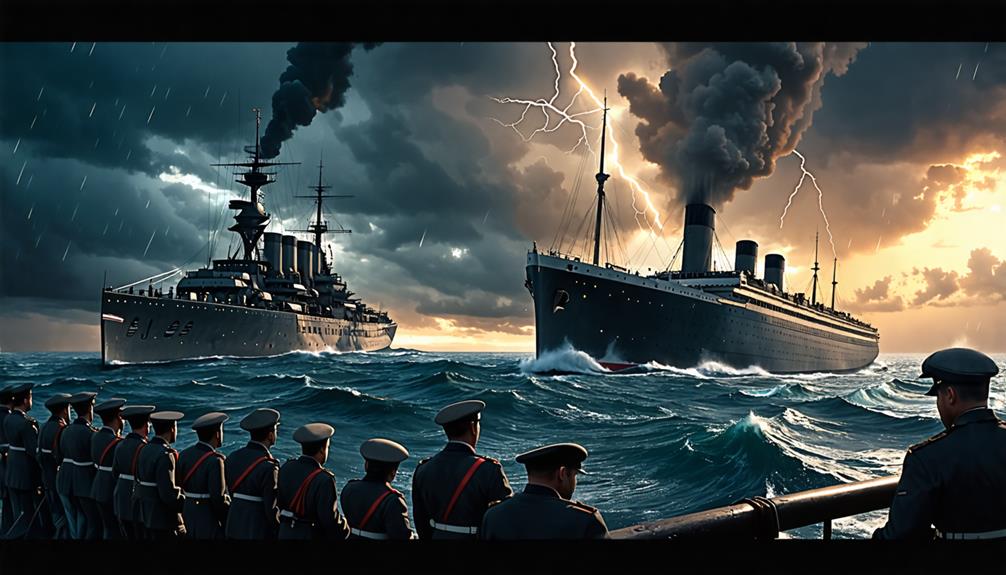
Had the Titanic safely arrived in New York, the influential passengers onboard could have potentially altered the course of World War I. One theory is that their political and economic clout may have shifted global alliances and trade, leading to different diplomatic decisions that could have delayed or even prevented the war's outbreak.
It's possible that if these titans of industry and politics had survived, their presence and influence could have significantly changed the events leading up to the war, resulting in a very different world than the one we know today.
While this specific scenario didn't occur, similar alternative history theories have been explored by historians and authors over the years, each offering unique perspectives on how small changes could have dramatically impacted the course of history.
Evolution of Luxury Travel
Had the Titanic not sunk, the evolution of luxury travel may have taken a different course. One theory is that without the wake-up call of the Titanic disaster, the adoption of lifeboat requirements and safety drills would have been much slower.
It's possible that ship designers would have continued prioritizing opulence over safety features for a longer period. Additionally, the implementation of ice patrol and weather warning systems might've been delayed.
While the Titanic's sinking prompted immediate changes, similar disasters occurred later, such as the sinking of the SS Eastland in 1915. These tragedies further underscored the importance of safety measures in the luxury travel industry.
Changes in Popular Culture
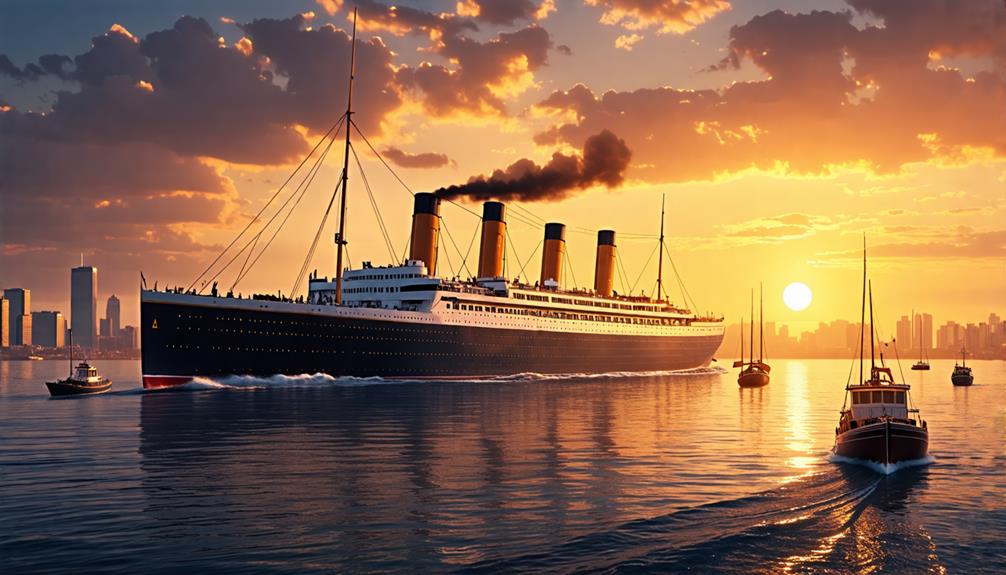
Had the Titanic safely arrived in New York, the world's cultural landscape would look quite different. One theory is that the ship's successful maiden voyage could have reinforced faith in the infallibility of modern technology, potentially leading to even more daring feats of engineering.
It's also possible that without the Titanic's tragic legacy, maritime safety regulations may have advanced more slowly.
While the Titanic's story wouldn't have inspired the iconic 1997 film or Celine Dion's ballad, other tales of triumph or tragedy could have taken their place in popular culture.
It's worth noting that the sinking of the Lusitania in 1915 and the Andrea Doria in 1956 also left their mark on history, albeit to a lesser extent than the Titanic.
Alternate Historical Narratives
In an alternate timeline where the Titanic never sank, the ship could have become an enduring symbol of humanity's mastery over technology and the elements. Its successful maiden voyage might've bolstered public confidence in the safety and reliability of ocean liners, potentially delaying the implementation of stricter maritime regulations.
One theory suggests that without the Titanic disaster, the lives of its passengers and crew would have taken vastly different trajectories, leading to countless 'what if' scenarios and butterfly effects rippling through history.
It's worth noting that while the Titanic's sinking was a singular event, other maritime disasters did occur in the following decades, such as the sinking of the Lusitania in 1915 and the Andrea Doria in 1956, which led to improved safety measures and ship designs.
Conclusion
The Titanic's legacy endures, even in an alternate reality where it safely reached New York.
Like Icarus flying too close to the sun, the ship's triumphant maiden voyage could have fueled hubris and complacency.
Yet, just as the Phoenix rises from the ashes, the Titanic's success might've catalyzed innovation and progress.
In the end, you're left to ponder how one ship's fate could have altered the course of history.
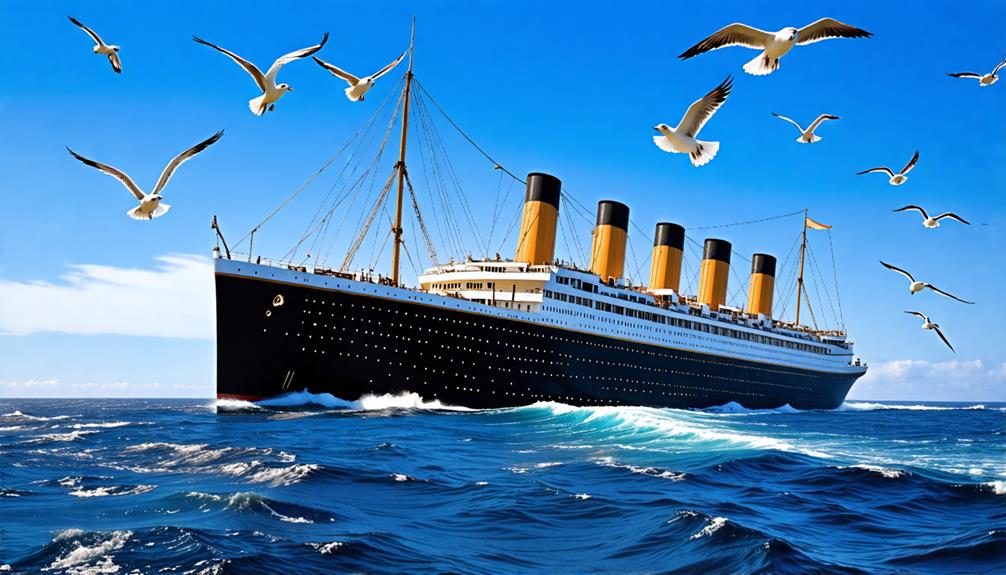
Leave a Reply